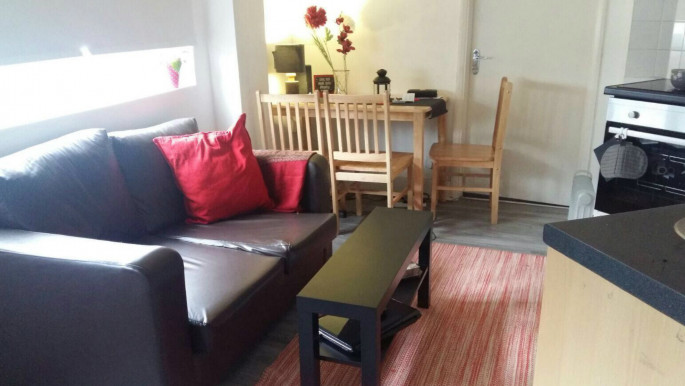Campaign urges UK landlords to help house Syrian refugees
Under the UK Government's Vulnerable Person Resettlement (VPR) scheme, up to 20,000 of the most vulnerable of Syrian refugees living in camps in Jordan, Lebanon and Syria are to be resettled in the UK by 2020.
Yet with the settling of refugees under the scheme seeming to be painstakingly slow, The New Arab speaks to a leading figure in an initiative who believes private landlords and local communities can do a lot to aid the process.
Atia Lokhat-Hafezjee believes that renting homes to Syrian refugee families is a life-changing experience for everyone involved – and for the landlord, it makes financial sense.
While the UK government has put together a financial package to help local councils contribute towards the costs of supporting the refugees as part of the VPR scheme, the resettlement process has been protracted.
"A local council's participation in the scheme is voluntary – although since the summer, more local authorities are coming forward to take in families, but overall the process has been somewhat slow," Hafezjee tells The New Arab.
"But there is another way to help take in refugees and that is through working with local communities to help pave the way for refugees to come to the UK," she says.
 |
It all started when I found out that I can help incidentally, after someone from my community circulated a video about how landlords can offer their houses to be rented to Syrian refugees |  |
Hafezjee led an initiative with Paul Eedle to work with locals and help in the settlement of Syrian refugees. Their work focused on pushing private landlords to offer properties up for rent to refugee families.
"It all started when I found out that I can help incidentally, after someone from my community circulated a video about how landlords can offer their houses to be rented to Syrian refugees."
Hafezjee says she was intrigued and sought out more information about the process.
"The information was out there, but no one had put it all together before for landlords to access. So we gathered all the relevant information and put it together in a leaflet," she says.
To lead by example, she rented out her property to a Syrian family.
 |
| Hafezjee rented out her property to a Syrian family |
"I offered to rent out my property to a Syrian family, and it is going really well," Hafezjee says.
"Our relationship is more than just that of a landlord and a tenant. We speak almost daily. They have been really good tenants."
 |
I offered to rent out my property to a Syrian family, and it is going really well... Our relationship is more than just that of a landlord and a tenant |  |
The personal experience led Hafezjee to reach out to other local landlords, inviting them to an open house event to explain how they can help.
"We had a really good turnout, and I have had plenty of calls since then from people across England, asking how they can do the same," she says.
"At the event, my Syrian tenants also spoke about their experience and how the availability of a property has helped them."
While reservations by private landlords mainly stem for fears of loss of revenue, Hafezjee says government backing for the support should allay their fears.
"It is a win-win for landlords because they are getting a rent payment guaranteed," she explains, "In some cases the government is paying them directly, so they do not have to chase tenants."
Hafezjee says with the government agreeing to pay immediately, landlords do not incur losses while waiting for a refugee family to move in, which can sometimes take up to six weeks.
Volunteers from local communities have also been instrumental in helping the refugee families settle.
"There are also community groups who are willing to help out with things like painting and decorating the property before the Syrian refugee family moves in," Hafezjee says.
"When you reach out to a family that is waiting in a camp, it is a matter of life and death for them," she says, "And what I found from this experience, is that as landlords we have an opportunity not to just measure success by how much money we earn, but how many lives we can save."
Through her own experience in renting out to a displaced Syrian family, Hafezjee has found that stereotypes against refugees are deeply unfounded.
"They are people like me and you, with normal lives that were suddenly turned overnight," she says.
"They lost their homes, their jobs and even members of their family. They are not here to take people's jobs or steal out stuff, they want to return to their country.
"I know from the family I am renting to, in which the mother was an architect and the father worked in banking, they speak about returning and rebuilding their country.
"Until then, landlords can choose to help save their lives – if they are willing."



